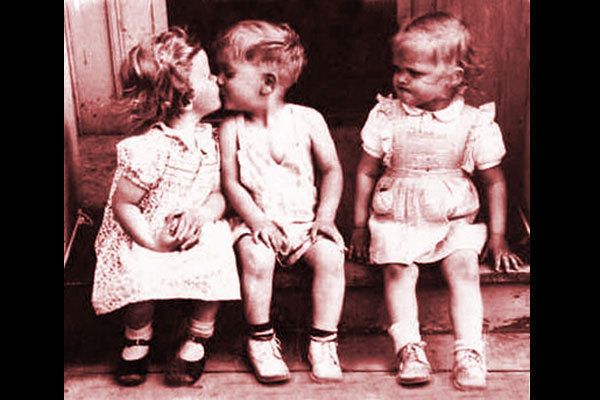
Another favorite post of Gretchen’s is the one on how to “Forgive an Accident.” Probably because, as a person who struggles with severe ruminations, I can so often be disabled … literally … by running a mistake over and over again in my head until that mistake takes over all the gray matter of my brain, so much so that I can’t pay attention to my kids, or hear what my husband is saying. The error of the day is the only thing able to sit there in my head.
Discovering that someone as successful as Gretchen has trouble letting go of an accident can be extremely comforting. Somehow I thought that anyone who graduated from Yale was mistake-proof, or at least knew how to move past them in a half second.
One of my happiness-project resolutions is to “Forgive an accident.” Now, you might think, why should I try to forgive an accident? After all, if something is an accident, there’s nothing to forgive. Accidents happen, we all know that.
Yes, I know that. Accidents happen. But I still find it hard not to be annoyed – and to act annoyed – in the face of certain accidents. Reminding myself of my resolution helps me to respond in the right way.
Here are just two examples:
1.
When we were flying to Kansas City to spend Christmas with my parents, my daughter lost her “functional appliance.” If you’re not current with the latest parlance of orthodontia, this is like a fancy retainer. My daughter is supposed to wear it at all times, except when she’s eating. We were on the plane, she took it out to eat, and the next time she looked for it, it was gone. We all looked, couldn’t find it. We think it must’ve been thrown away when the stewardess took her food tray.
I was annoyed: she wouldn’t be able to wear this thing again until we were back in New York and had managed to replace it; getting a new one would be expensive; it would be inconvenient.
2. Recently, my husband left his wallet in a cab. The second he reached the sidewalk, he realized he didn’t have his wallet, and he raced down the street to stop the cab, but it was gone. He waited anxiously for two days before he had to admit to himself that it really wasn’t coming back. Before that, however, we had to cancel our credit cards.
I was annoyed: we’d put a lot of recurrent and online charges on one of the lost cards, so that number had to replaced many times, by me.
In each situation, I could feel the accident-causer bracing against my possible annoyance, and it was very, very hard to resist the temptation to say things like, “You should’ve been more careful!” “Now we’re going to have all this hassle to fix this!” “How could you have not noticed that you didn’t know where it was?” etc. But I realized – what was the point? My daughter felt terrible, my husband felt terrible. In general, they’re both very responsible (my daughter had never lost her F.A. before, and my husband had never lost a wallet before). They obviously hadn’t done these things on purpose. Why make a bad situation worse?
In each case, once the moment passed, I was very glad that I reacted mildly. (I even came up with a good idea about credit cards: now we have a card that never leaves the house that we use for online charges.) When you’re feeling bad about something you’ve done, it’s awful when someone adds to that feeling – you feel defensive, resentful, and misunderstood. I didn’t want to cause that.
To continue reading Gretchen’s post, click here.
* Click here to subscribe to Beyond Blue! And click here to follow Therese on Twitter. And click here to join Group Beyond Blue, a depression support group. Now stop clicking.

